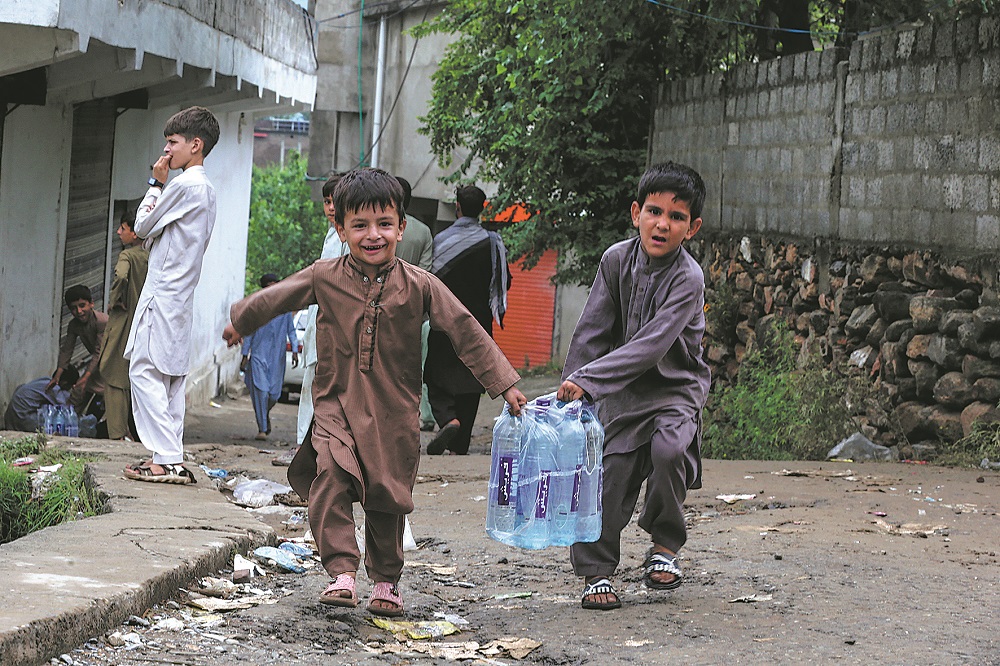Monsoon rains pile misery
Flood crisis hits Pakistan's mountainous north, causing massive loss to life and property


Controllable factors
Environmentalists agree deforestation is one of the glaring reasons behind climate change-triggered calamities in the north. According to the Pakistan Forest Institute, the country is forest-poor with only 4.72 million hectares with the per capita forest area of 0.033 hectare, considerably less than the global average of 1 hectare.
Tariq Ali Shah, a forest expert who works closely with the Khyber Pakhtunkhwa government, said the province has been losing forests at a rate of about 1.5 percent annually, which is equivalent to 8,000 hectares per year — almost the size of Pakistan's capital Islamabad's city area — between 2000 and 2023.
"This rapid loss of trees uphill has set the stage for nature's current anger," Shah said.
When deforestation occurs, land is exposed to sunlight, and the influence of forests on runoff is dramatically reduced, resulting in floods both in rivers and on land.
Forests also have a deeper link with the incidence of glacial lake outburst floods, as they are perpetually ensuring that the glaciers in Pakistan stay cool. Without them, they would melt at a much faster rate, which they already are.
Also, fast-flowing rivers are gulping down multistory houses, hotels and roadside resorts. Officials and conservationists alike say the effect is the same: narrowing rivers and forcing water to swell with greater ferocity during heavy rains.
At the heart of the problem is unplanned construction up north. In the last decade, the region has witnessed a rampant rise in hotels and guesthouses built right on riverbanks to lure tourists. According to experts, this unchecked expansion is not just degrading fragile mountain ecosystems but also choking the waterways.
"This construction around the river is a hindrance to its natural flow," said WWF's Raza. "During the construction, they have one aim: the views. But what they forget is that the river never forgets, and it comes back to take revenge."
























